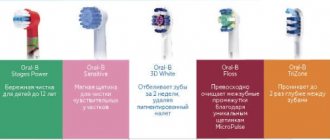Astrology, which is a soft science, is often perceived with skepticism when its influence on precise medicine is assessed. However, ardent skeptics confirmed that the course of dental treatment and prosthetics is determined by the lunar phases.
From the article you will learn about how the phases of the Moon affect treatment and health in general, how the success of treatment depends on what phase the Moon is in, and you will also be able to calculate the optimal day to schedule a visit to the dentist depending on your zodiac sign.
What is a lunar calendar?
The moon can be waning, waxing or full. It affects the ebb and flow of the marine environment. It also affects human behavior and health.
The lunar calendar tells about the day and provides recommendations.
In ancient times, time was calculated using the calendar. The phases became a prerequisite for the division into months of the year.
Later, a solar calendar was created that is used in our lives.
A lunar month consists of 30 or 29.5 days.
In this case, the day begins with the rising of the Moon. And this happens at any time of the night or day.
The moon goes through four phases in a month. First waxing, then full moon and waning.
Calendar Features
The moon is full of energy and influences all aspects of life.
During the growing phase, the legs are filled with energy, and by the full moon, activity affects the head.
A few days before and after the new moon, you should save your energy. During this period, a person is subject to negative influences.
It is during the growing phase that new things should be started, and during the decreasing period, one should complete what has been started.
Nails and hair grow faster from new moon to full moon. Even in ancient times, healers recommended removing teeth according to the lunar calendar during the waning period, and doing nothing during the new moon.
How to choose a toothbrush?
Competent and careful daily oral care is the key to your health, easy and effective treatment. Moreover, it is important not only to choose the right brush, but also to master the cleaning technique. The procedure should be carried out for at least two minutes each time and use a variety of movements. In addition to the traditional and familiar brushes on the shelves today, we see electric, ionic and sonic. Electric ones greatly simplify cleaning, but with high-quality manual work, a regular brush is in no way inferior to them. If you have chosen such a tool, purchase brushes with a rotating head. Ionic brushes have a battery inserted and a rod inside, the interaction of which releases negative particles that clean the oral cavity. The last type, sonic, also does not greatly improve cleansing. Dentists assure that the main thing is to regularly and properly brush your teeth, avoiding natural bristles that promote the growth of bacteria.
Is it worth treating teeth according to the lunar calendar?
Visiting the dentist according to the lunar calendar has been used since ancient times. Using this method helps avoid complications.
Impact on the body
During the full moon, the moon affects the manifestations of the human body. During this period, a person accumulates energy in order to use it up when it decreases. During the new moon, the body is susceptible to infections and inflammation. Diseases that arise during this period are more difficult to resolve.
Best time for treatment
If you treat your teeth according to the moon, you should pay attention to the following recommendations:
- Filling and manipulation of crowns should be performed according to the following rules:
- Dental treatment is recommended during the waning period, closer to the new moon;
- You should not go to the doctor on a new moon or under the sign of Aries or Taurus.
- It is recommended to remove stones during the detrimental phase or closer to the new moon.
- Tooth extraction according to the lunar calendar should be carried out in compliance with certain rules:
- a favorable moment in the week before the new moon, but not for Aries, Taurus and Cancer;
- It is not recommended to do the procedure before the full moon or during the young phase.
Complications
If you choose the wrong lunar days for dental treatment, complications may arise, and the healing process will take a long time.
If treatment is carried out during the full moon, scars remain or even bleeding occurs.
Whether the lunar calendar affects a person’s dental treatment or not, there is no reliable data.
Astrologers advise to carry out dental treatment according to the horoscope. Dentures and fillings hold up differently among people. Astrologers believe the reason for this is the influence of phases on the state of the human body.
There are favorable days for dental treatment in 2015 and periods when it is better not to visit the dentist.
For example, tooth extraction in September according to the lunar calendar should be performed on 28, 30, as well as from 10 to 14 and from 19 to 22.
How to use it correctly?
The first column contains information about the day of the month and day of the week. The second is about the phase of the moon and the lunar day. As for the third, it indicates the zodiac sign in which the Moon will be located. The fourth column tells about moonrises and sunsets. The last column describes information about the favorable period. You need to look in more detail at the 4 characters from the last column. They indicate the following periods of the Moon:
- [+] favorable period of the Moon;
- [?] not favorable;
- [±] neutral.
Important to remember! Any lunar calendar is not a panacea! It is only advisory in nature. When making important life decisions, rely first of all on yourself, then on family, friends and specialists, only then choose the right day with us!
Useful tips
There are certain recommendations when it is better to remove teeth according to the lunar calendar or carry out treatment.
- Favorable days for surgery are when the moon is in Cancer or Libra.
- It is better not to carry out dental treatment according to the moon in Taurus, Aries, Capricorn or Aquarius.
- Treatment is not recommended during periods of full moon or lunar eclipses.
- It is better to remove teeth during the waning moon, which promotes vigor. During this period, a person tolerates pain more easily and recovers after treatment.
- During the new moon period, it is recommended to perform jaw surgery.
- When choosing to remove teeth in the morning or evening, it is better to prefer the morning hours. At this time, the body tolerates stressful conditions more easily.
- Favorable days for tooth extraction are from the third to the fifth day of the waning moon.
- The best lunar days for dental procedures are considered to be: 2.28 and 27, as well as 6.7 and 14.15.
During the waxing moon, a person accumulates energy, and during the waning period, he spends it.
If you are worried about severe pain, then you should not put off going to the doctor. In this case, you should not wait for favorable circumstances.
Dependence on the horoscope
A horoscope is used for dental treatment; each zodiac sign has its own characteristics of dental condition.
- It is believed that Aries teeth are vulnerable. The upper jaw is considered particularly weak. People of this sign are sensitive to the removal of nerves. It is worth paying attention to good anesthesia. In autumn there is a greater risk of hypothermia. Sometimes an x-ray is required to cure a tooth.
- The Taurus horoscope is responsible for the nasopharynx, pulp and jaws. People of this sign should take good care especially of the lower jaw. Fillings on the lower jaw are less durable.
- Geminis should be wary of stress, cold and drafts. Such factors contribute to the occurrence of jaw problems. They are prone to periodontitis and gum problems.
- In people born under the sign of cancer, the color of the enamel often changes and internal problems with the gums arise. Jaws ache when drinking cold water.
- For a lion, the threat is posed by solid food and various damage to the enamel. People of this sign often experience abrasion. It is recommended to eat foods rich in calcium.
- Virgos are advised to take multivitamins. The appearance of caries is influenced by nervous exhaustion. If stains appear on the enamel, you should consult a doctor.
- Libra's weak point is the front jaw. Malocclusion is common.
- Scorpios are afraid of dentists, but their treatment is painless and quick. They often resort to cosmetic procedures.
- The cause of gum problems in Sagittarius is viral diseases. Particular attention should be paid to root canals.
- The Capricorn horoscope is associated with the skeletal system, which is why people of this sign have strong jaws. But with untreated caries, chronic pulpitis occurs.
- For Aquarius, a beautiful smile is important, so it is necessary to carry out treatment and aesthetic restoration. The side teeth are a weak point.
- Pisces do not tolerate pain well. They have weak gums that are prone to bleeding.
Planning by calendar
For all zodiac signs it is recommended to use a calendar for tooth extraction and other medical procedures:
- Tooth extraction according to the lunar calendar 2015 should be planned for the day the moon is in the constellation Scorpio.
- In case of acute diseases, when it is not possible to wait for a favorable phase of the moon, pay attention to 2, 5, 27, 28, 15, 14 on a lunar day, it is better to remove teeth.
- Caution is recommended for pregnant women. You should not visit a doctor in the first trimester. If it doesn’t work out otherwise, you should choose a day of the decreasing phase.
Following the recommendations will allow dental procedures to be easy and painless.
Every living organism on our planet is influenced by the solar-lunar cycle. Thanks to this phenomenon, we can observe periods when the moon fills with powerful energy and restores vitality. There are also periods when the night light, as if deliberately making its own adjustments to plans, weakens you and has a detrimental effect on the body.
For many, visiting the dentist is associated with unpleasant and painful sensations. However, dental treatment according to the lunar calendar will help not only relieve pain, but also significantly shorten the recovery period and reduce the risk of possible complications.
What materials are used in dental prosthetics?
In this section we will talk specifically about materials for dentures, because with implants everything is simpler and is described here>>. In short, almost all existing dental implants are made from bioinert titanium alloys; contrary to popular belief, “pure titanium” is not currently used for the production of implants.
The artificial tooth itself, or denture, can be made from different materials or combinations thereof.
Thus, acrylic and, in some cases, nylon, which is more comfortable to use, are traditionally used for removable dentures. Special dyes and, in some cases, artificial fibers are added to it in order to imitate the gum mucosa as best as possible. The color of the prosthesis is a matter of the patient’s wishes. Sometimes, in case of allergies, they are made transparent, without any dyes at all. At the same time, the teeth themselves are usually manufactured at the factory and end up in the dental laboratory in the form of ready-made sets. They can be plastic, composite, porcelain, with varying degrees of detail and naturalness. The stronger and more natural artificial teeth look, the more expensive they are, of course.
Accordingly, the dental technician selects a headset that is suitable in color and shape (and this is also a matter of the patient’s wishes). First, they are tried on a wax model, and then glued into an almost finished prosthesis base - and the result is beauty!
Composite materials are used to manufacture temporary prosthetic structures. They are sometimes confused with plastic, but composite is still not plastic. In contrast, it contains particles of solid inorganic filler, usually quartz or aluminum oxide, which gives it mechanical strength. Therefore, composite crowns last longer and wear out less, unlike plastic teeth.
Previously, just a few years ago, temporary composite crowns were made by polymerization, much like how dentists make fillings. Now, with the development of digital technologies, the situation has changed - and the process of making temporary crowns on natural teeth and implants is practically no different from making ceramic or zirconium oxide dentures - a scanner, computer modeling, a special milling machine and final finishing by a highly qualified dental technician are used.
Yes, this is somewhat more complicated and expensive than simply sticking filling material onto a model, but such crowns turn out to be much denser, more durable and aesthetically pleasing. And temporary crowns on implants can generally last for several years, if necessary.
Permanent crowns supported by natural teeth can be divided into two groups: framed and frameless .
Frame crowns contain a cast (old-fashioned) or milled (modern technology) frame, onto which ceramic mass is applied successively, in layers.
The frame itself can be made of different materials, depending on the task and patient preferences:
- made of metal (chromium-cobalt alloy, titanium, zirconium, precious metals, etc.), thus we obtain the well-known cermets.
- from oxides (zirconium oxide, aluminum oxide, etc.), this is how metal-free crowns are obtained, erroneously popularly called “zirconium oxide”, “zirconium”, etc.
- made of ceramics (the same pressed ceramics E-max). It should be noted that it can be used to make both a crown frame and an entire crown; the latter is used in cases where it needs to be done beautifully, but super-duper-megaesthetics is not required. For example, when making crowns in the side of the jaw.
Frameless crowns are made mainly from ready-made ceramic blocks by milling; the technician only needs to make minor color and shape corrections.
This is the most advanced, most complex and expensive technology that makes it possible to produce very thin (with a wall thickness of 0.2 mm) restoration crowns and, therefore, preserve tooth tissue to the maximum. For the high-quality and aesthetic production of such prostheses, very expensive equipment and highly qualified specialists at all stages are required - fortunately, our dental center has all this.
The search for optimal materials for dentures does not stop to this day - new alloys (for example, tantalum), new high-strength materials for aesthetic prosthetics (various silicates and ceramic masses) are appearing, which, on the one hand, satisfies the highest aesthetic needs of our patients, on the other hand on the other hand, it makes our work more and more difficult every day. But it's worth it, isn't it?
The use of implants as a support for artificial teeth makes some adjustments to prosthetic technology.
Technically, we can make the same crowns for an implant as for natural teeth, but for this we will need additional components. And that's why.
An implant, from a technical point of view, is just an artificial root. As we wrote above, this is just a universal support to which you can screw whatever you want.
Conceptually, there are two options for fixing permanent prosthetic structures on implants:
- – with screw fixation , a separate crown or denture is fixed to implants or abutments using screws.
This is the safest option, which, however, requires very precise placement and selection of implants according to axes and sizes. Currently, screw fixation is a priority for most clinical cases. - cement fixation is used in situations where for some reason it is impossible to use a screw fixation - for example, when fixing crowns on implants in an aesthetically significant area
A special abutment is used for it, which allows you to compensate for the angle of inclination of the implant. Like the crown, it is made separately and individually from various materials: cobalt chrome, titanium or precious alloys, zirconium oxide, aluminum oxide, etc.
A separate article about prosthetics on implants will soon be published on our website, in which we will tell you the details of this technique. In general, this topic would be enough for an entire website or a separate book, so it is not possible to fit it into the framework of a small introductory article.
Moon phases and their effect on the human body
Astrologers distinguish eight phases of the movement of the earth's satellite. Determining which phase the night star has entered is not difficult. The moon is in two states - waxing and waning. The final chord of the waxing moon is the full moon, and the cycle of the waning moon is reborn into the new moon. We propose to consider in detail the phases that are noted in the dental treatment calendar and the influence of the lunar calendar on our body:
- The first phase is the new moon. This period promises success in therapeutic dental treatment. Fluid from the upper body is directed downwards, which has a positive effect on kidney function. Cells are filled with energy, metabolic processes are accelerated. The new moon is the time for procedures such as dental fillings, cleaning of dental plaque, removal of wisdom teeth, and installation of dental bridges.
- The second phase is the crescent moon. The maximum impact occurs on the organs of the upper body - the brain, heart and lungs. During this period, the body is weakened and is in a state of energy accumulation. The immune system is weakened, regeneration processes in cells slow down, which reduces the regenerative ability of tissues. It is not recommended to treat or pull teeth during this period.
- The third phase is the first quarter of the moon. The immune system is weakened. Chronic diseases are getting worse. There is an effect on the human psyche. This is expressed in the manifestation of unreasonable fear and depression. However, the period of the waxing moon has a beneficial effect on the body's absorption of iron, calcium and magnesium.
- The fourth phase is the gibbous moon. A favorable time to cleanse the body of toxins and waste. Professional teeth cleaning provided by dentistry is permitted during this period. Blood clotting in the body decreases, which can cause heavy bleeding. Dental procedures during this period require the utmost care, especially tooth extraction.
- The fifth phase is the full moon. During the full moon, energy negatively affects the human body. Blood pressure rises and the heart muscle contracts faster than usual. The risk of epileptic seizures and attacks of renal colic increases. It is better to postpone treatment at the dentist until a more favorable time.
- The sixth phase is the dispersing moon. The protective function of the immune system increases. The risk of infectious diseases is reduced to zero. The operations usually take place without complications, and the rehabilitation period is intensively shortened. The pain threshold is reduced during tooth extraction, filling and prosthetics.
- The seventh and eighth phases - the last quarter and the balsamic moon - are the most favorable time for a person. Blood pressure returns to normal, metabolic processes in the gastrointestinal tract accelerate. There is no doubt that various jaw surgeries can be performed. At this time, dental treatment of any complexity will be successful.
Favorable days for treatment and tooth extraction
In 2015, Russian dentists conducted an experiment. The topic of study was the influence of astrology on the quality of dental procedures.
From the point of view of the lunar day
- The most favorable lunar days to remove a tooth will be: 3, 4 and 5 in the waning moon phase. These days, the removal will be almost painless, and the wounds will heal faster. The body is full of energy and copes well with harmful bacteria.
- The most successful days for cleaning and treating root canals in a tooth are: 2, 27 and 28 lunar days. This way you can avoid the occurrence of inflammatory processes. The risk of cysts appearing under the root and allergic reactions is reduced.
- If you need to fill a tooth, then pay attention to the 6th and 14th lunar days. According to the lunar calendar, the filling placed will be more durable, and the procedure itself will take place without complications.
- When installing a dental bridge or crown, choose: 6, 24 and 30 lunar days. During this period, the likelihood of gum swelling and the appearance of purulent discharge decreases.
- For dental therapy, the following are considered neutral: 1, 4, 8, 10, 11, 12, 13, 16, 17, 18, 19, 21, 22, 25 days of the lunar calendar. During this period, crowns and dentures can be installed.
- The most unfavorable days for visiting doctors or making serious decisions are: 7, 20, 29 days. These days are marked by the possibility of frequent inflammation and heavy bleeding during surgical interventions. The body, due to a weakened immune system, may succumb to infection or infection.
From the point of view of the horoscope (zodiac signs)
The effectiveness of treatment also depends on the horoscope and in which zodiac sign the moon is located. Usually, the planet Saturn is responsible for the condition of the oral cavity. On the modern astrological chart there are 12 signs and each has an incredible influence on the human body:
- Moon in Aries and Pisces - at this time headaches, migraines and dizziness become more frequent. The skin becomes vulnerable. It is not advisable to perform surgical or other therapeutic procedures on the face these days. In particular, you should avoid manipulating your teeth.
- Moon in Taurus - the influence of lunar energy on the vocal cords, ears and jaws increases. You can remove teeth these days, but only during the waning moon. Due to the vulnerability of the throat and oral mucosa, daily prevention should be carried out - rinsing with herbal decoctions.
- The Moon is in Gemini and Aquarius - during this period, you should approach the choice of anesthetics when removing teeth with great responsibility, since there is a possible risk of swelling of the bronchial mucosa.
- Moon in Cancer and Capricorn - these days there is an increased vulnerability of the stomach; you should limit the intake of anti-inflammatory non-steroidal drugs after dental treatment. Any dental interventions will take place safely and without complications these days. Pay attention to vitamin complexes to strengthen tooth enamel - these days they will be perfectly absorbed in the body.
- The moon in Leo and Virgo is an ideal time for preventative procedures in the oral cavity. However, it is better to postpone tooth extraction until another time, as there is a possibility of bleeding.
- Moon in Libra and Scorpio – fillings can be successfully placed during this period. Especially if the moon is waning.
- The Moon in Sagittarius is a neutral period for dental treatment. However, do not forget an important rule - tooth extraction should not be scheduled during the new moon or full moon.
What can be done about missing teeth or teeth that need to be extracted?
Traditionally, all existing options for restoring missing teeth can be reduced to two groups: removable and fixed prosthetics.
The differences are simple: any removable prosthesis yourself without the help of a doctor, while fixed prosthetic structures either cannot be removed at all, or this can only be done with the help of a doctor.
For example, you can remove a removable laminar denture without the participation of a doctor. And put it on exactly the same way, without helpers:
More advanced versions of removable dentures are trying to be made more compact, and for this purpose almost all plastic is replaced with metal - this creates a more compact (and therefore more comfortable) removable denture, called clasp.
Often, a clasp denture is made with special locks (attachments) and clasps (claws) so that it is more accurately and reliably fixed to the remaining teeth. Yes, such a prosthesis is much more convenient than a removable plate prosthesis; it does not rest on the gums, but at the same time it significantly loads the teeth (therefore, they often have to be taken under crowns and combined into bridge structures).
Removable prosthetics can also be implemented using dental implants.
So, to fix a removable denture (if, for example, it dangles and does not stay on the jaw), you can use a pair of implants with special locks.
At the same time, the prosthesis does not dangle and does not rub the gums. In the case of an increased gag reflex, it can even be slightly reduced without losing stability. However, the service life of such a prosthesis is still limited by wear, and it must be periodically repositioned.
Therefore, with a large number of implants (minimum 4 units), it is possible to create a removable prosthesis with fixation on a beam.
A beam (or two beams) firmly fixed to the implants with locks evenly distributes the load on the implants, while the prosthesis itself can be significantly reduced in size - in fact, it is almost no different from a fixed one. Therefore, it is easier to get used to, and it lasts much longer than any other removable structure.
Fixed prosthetics require a reliable support, which can be either natural teeth or implants.
In the case of making a bridge based on natural teeth, the latter are very carefully ground down. To do this, they use special tools with relatively low speeds and very good cooling - this avoids thermal injury to the dental pulp, therefore, it is not at all necessary to depulpate the abutment teeth (as was done before). Most often, it is possible to avoid removing the nerve altogether, and a living tooth can better withstand the load and last longer.
However, even perfectly prepared teeth, onto which a perfectly made bridge is fixed, turn out to be overloaded - if previously they received chewing load only from their own surface, now they bear it also from missing teeth.
The higher the load on the tooth, the higher its wear. Especially. if the tooth is depulped (the nerve is removed from it). Therefore, some doctors try to distribute the load as much as possible from missing teeth to as many remaining teeth as possible.
From the point of view of our clinic and our orthopedists, this approach does not look entirely rational from a medical and economic point of view. And really, is it worth intervening, grinding, and sometimes depulping several teeth to restore one missing one?
And this is where dental implants come to our aid. Dental implantation is one of the main areas of our activity.
The essence of using implants for fixed prosthetics is extremely simple - just like teeth, they create a stationary, reliable and, most importantly, universal support for a denture. Thus, the use of implants allows for the widest range of dental prosthetic options:
The implant does not have a connective tissue ligament surrounding the natural tooth. From a biophysical point of view, a dental implant is a continuation of bone tissue. The chewing load, sometimes quite significant, is transmitted and distributed in the jawbone, bypassing the periodontal ligament and mucous membrane - this explains the long service life of the implant, much longer than that of natural teeth under crowns. And this gives us the opportunity to provide appropriate guarantees for the work we have done. Of course, subject to following certain recommendations.
Possible complications
If you follow the advice of astrologers and follow the recommendations of the lunar calendar, you can learn to use lunar energy for your benefit, and following the dental treatment calendar will help you endure dental procedures with ease.
However, you should not blindly adhere to the lunar calendar for tooth extraction. Especially in cases where emergency medical care is needed. Untimely treatment can lead to such unpleasant phenomena as pulpitis, acute and chronic periodontitis, and infection of the entire oral cavity.
A person’s well-being is related to the location of the Moon in relation to the Earth - its phase. This fact has long been proven by scientists and is not in doubt. Many doctors recommend coordinating therapeutic and preventive procedures, including dental treatment, with the lunar calendar. It is believed that the quality and result of the manipulation, as well as the likelihood of complications, largely depend on one or another phase of the moon.
Let's return to the problem of delayed dental implantation
And let's talk about the situation when a patient decides to have an implant installed 5-10-15 years after its loss. Let’s call it the general term “implantation after some years.”
In implantation, after “some” years, even installing one implant in the chewing area can actually become a big problem.
Implantation in the chewing area
The problem may arise that a traumatic removal of this tooth from the chewing area was previously performed. If a traumatic extraction is performed in the area of the 6th upper or 6th lower tooth or the bone tissue has narrowed, then bone augmentation must be done, because the bone tissue is narrow. There is a problem there, yes. Precisely with bone tissue growth. This problem is quite complex, and for the patient it is an unpleasant procedure. Unpleasant in what way?
The fact is that the patient will be uncomfortable for some time after bone grafting.
The following discomfort is possible after bone grafting:
- there will be swelling,
- chewing will be difficult, you can only eat on the other side of the teeth,
- pain will occur.
Pain after bone grafting depends on the patient’s pain sensitivity threshold. There is really no need to be afraid of pain. There are drugs that reduce this sensitivity and act as a complete pain reliever. The painful moment in implantation and bone grafting is a quickly passing phenomenon, and it is not so tragic.
In November 2022, my colleague, implant surgeon at the Research Center Kolushev Gleb Valerievich personally performed dental implantation in the masticatory region for me, as a patient. Two Astra Tech implants with sinus lift were installed. Below in the video I attach a report on the progress of the operation and my personal feelings:
Dental implantation in the anterior region
Another question is if you need to install an implant in the frontal region, i.e. in the area of the front teeth. In the anterior region, it is more difficult to implant a tooth, because the anterior teeth are an aesthetically significant area:
It will be necessary to do both plastic surgery of the bone material and plastic surgery of the soft tissues, that is, plastic surgery of the mucous membrane. And this is a rather serious point, the doctor must be professionally savvy in this matter, and the process of implantation in combination with plastic surgery turns from a momentary procedure into a complex sequential process that requires quite a lot of time.
Why? Because even 1-2 years are needed to get a good result. What do patients usually need? - so that he comes today
, and
tomorrow
he has already become the most beautiful.
This metamorphosis is not only in the field of implantology, it exists everywhere in the beauty industry. Therefore, the optimal solution must be chosen, and the dental clinic must have advanced equipment and the best technologies that allow solving the most complex problems of the aesthetics of the patient’s smile. Each clinic of the German Implantology Center is equipped with such equipment. And all our specialists undergo continuous training in the best European and world training centers.
In the examples of work presented below, implantation was carried out both in the area of the chewing group of teeth and in the frontal region, followed by prosthetics with two types of crowns. You can select an example to learn more about it.
What is the lunar calendar, how do the phases of the moon affect the human body?
The lunar calendar is one of the varieties of the calendar, which is based on the periods of changing phases of the Moon, that is, on synodic months with an average duration of 29.53059 days. A certain position of the satellite in relation to the Earth affects the human body in different ways. Each of the lunar phases affects well-being as follows:
- New moon. During this period, energy is accumulated for the further growth of the Moon. A person feels a loss of vitality, and this state can last until the full moon. During the new moon, it is not recommended to treat diseases, including removing teeth, putting fillings, or performing prosthetics, since at this unfavorable time the likelihood of heavy bleeding and poor survival of dentures increases.
- Waxing Crescent. This phase is most favorable for visiting the dentist. At this time, the body's defenses are strengthened and it is filled with energy. After the implementation of therapeutic and preventive measures, recovery occurs especially quickly and painlessly.
- Full moon. By this phase, the Moon accumulates the maximum amount of energy, but during this period a person feels a loss of strength and apathy. Both in dentistry and in all areas of medicine, it is believed that this is not the best time to plan various medical procedures, since their implementation may lower the pain threshold and cause problems with blood clotting.
- Waning moon. In this phase, the satellite loses accumulated energy, and the person accumulates vitality as much as possible. The waning of the night star is the best time to treat diseases. As a rule, there are no difficulties when performing procedures, operations are carried out quickly and painlessly, and rehabilitation takes place in the shortest possible time.
- Eclipse of the Moon. This phase is unfavorable for a person, because when it occurs, his activity becomes minimal, the risk of developing depressive conditions increases, and the body’s resistance to viruses and pathogenic bacteria is significantly reduced.
It is recommended to consider the phases of the moon before planning various medical procedures. Thanks to the lunar calendar, it is easy to determine when it is better to treat or pull out a diseased tooth and perform prosthetics, and on which days you should not plan a trip to the dentist.
Preparation and x-ray
Before implanting titanium pins into the oral cavity, a person needs to be prepared to undergo a comprehensive examination of the entire body. Specialists check the condition of periodontal tissues especially carefully. To do this, you may need to undergo some tests, as well as undergo an x-ray examination. This will help determine the presence of contraindications and the sufficiency of bone volume in the place where it is planned to install an artificial tooth substitute.
Based on the data obtained, the doctor will guide his client regarding suitable treatment methods, the duration of the rehabilitation period, and also predict the final result. At the initial consultation, you are also asked to take a short survey, this will help identify whether the patient has bad habits, for example, addiction to alcohol, as well as chronic diseases. Such points must be taken into account at the stage of preparation for surgery.
Based on the clinical picture, the doctor can refer his patient for a computed tomography scan, local x-ray or orthopantomogram, that is, a panoramic examination (in case of multiple missing teeth). Modern equipment guarantees three-dimensional and clear images that help to understand the exact condition of the vessels and nerve endings at the site of the operation. CT is an important stage at which the doctor determines the optimal parameters of future implants, as well as their angle of inclination during installation.
Suitable days for dental treatment and other dental procedures according to the phases of the moon
Dental treatment according to the lunar calendar is a guarantee of fast and high-quality dental intervention and a speedy painless recovery. The best time to remove tartar is considered to be the period when the Moon is in its waning phase. During this phase, it is best to carry out manipulations to install various orthodontic structures.
Otherwise, following the lunar day will be inappropriate. In cases where there is a need to urgently remove or treat a diseased tooth, and the position of the Moon is unfavorable for dental intervention, special attention should be paid to the rehabilitation process.
Using the lunar calendar when planning treatment for oral diseases will help avoid complications during and after the procedure. Even medical professionals do not recommend ignoring the lunar phases, since this can lead to the occurrence of inflammatory processes in the future and entail considerable costs for eliminating undesirable (and in some cases, dangerous) consequences.
Do's and Don'ts before surgery
About a week before the important procedure, the patient should give up all addictions: smoking, drinking alcoholic beverages, eating junk food, etc. It is best to stock up on healthy and vitamin-rich foods, such as kefir, cottage cheese, fruits and fresh vegetables. If there is a need to take special medications that slow down blood clotting, they will also have to be temporarily abandoned.
About a day before the scheduled procedure, it is worth having your mouth professionally cleaned to remove plaque and hard deposits on the enamel. All medications should be used only after consultation with a specialist. Active sports, stress and exertion are contraindicated.
Immediately on the day of surgery, heavy smokers are strongly advised to forget about cigarettes. You should also not overeat before visiting the clinic, just eat a little. You will not be able to eat immediately after surgery, but only a few hours after the anesthesia wears off. In addition, it is better not to drink strong coffee and tea.
previous post
Dental implantation in one day
next entry
Treatment and removal of teeth depending on the position of the moon in the zodiac sign
When performing dental procedures, the horoscope is also taken into account. A representative of each zodiac sign should know the specifics of the condition of their teeth:
- Aries. People born under this sign have sensitive teeth. Particularly weak are the units located on the upper jaw. Aries often have problems with pulp removal - to cure a diseased tooth, X-rays are often required.
- Taurus. In patients of this sign, the installed fillings are not durable. In addition, special attention should be paid to the teeth of the lower jaw.
- Twins. Exposure to frequent stress and hypothermia often provokes jaw diseases. People of this sign are prone to developing periodontitis and gum pathologies.
- Cancers. Such patients often suffer from darkening of the enamel and internal damage to the gum tissue. When exposed to too low temperatures, your jaws may ache.
- Lions. People of this sign should eat solid foods with great caution; their diet must necessarily contain foods rich in calcium. Lions are susceptible to increased tooth wear.
- Virgos often suffer from caries due to nervous exhaustion.
- Scales. The upper jaw and malocclusion are their weak point.
- Scorpios. People born under this sign, as a rule, are very afraid of going to the dentist, but treatment and removal of teeth is almost painless and quick.
- Sagittarians should pay special attention to root canals.
- Capricorns. These patients have a strong dental system. In some cases, poorly treated caries leads to chronic pulpitis.
- Aquarius. The weak point of this zodiac sign is the lateral units.
- Pisces have a low pain threshold. Their gums tend to be weakened and prone to bleeding.
When visiting the dentist, you can also take into account which zodiac sign the Moon is located in. Unfavorable signs are:
- Aries. It is undesirable to intervene in the maxillary region and perform pulp removal.
- Fish. Visiting the dentist's office is not recommended due to a lower pain threshold and an increased risk of developing allergies.
- Calf. Complications are possible during manipulations in the area of the lower jaw and maxillotemporal joint.
- Capricorn. Due to the vulnerability of the bones, the likelihood of fractures and injuries is high.
Favorable signs for dental procedures:
- Scales. It is recommended to whiten teeth, correct malocclusions and install orthodontic appliances.
- Virgo. It is worth carrying out dentures, manipulations to strengthen the enamel and filling.
- Cancer. You can remove tartar, whiten teeth, and prevent caries (we recommend reading: competent treatment of tartar). It is better to postpone gum treatment as there is a high risk of bleeding and swelling.
In addition, there are neutral zodiac signs. This category includes Gemini, Leo, Scorpio, Sagittarius and Aquarius.










